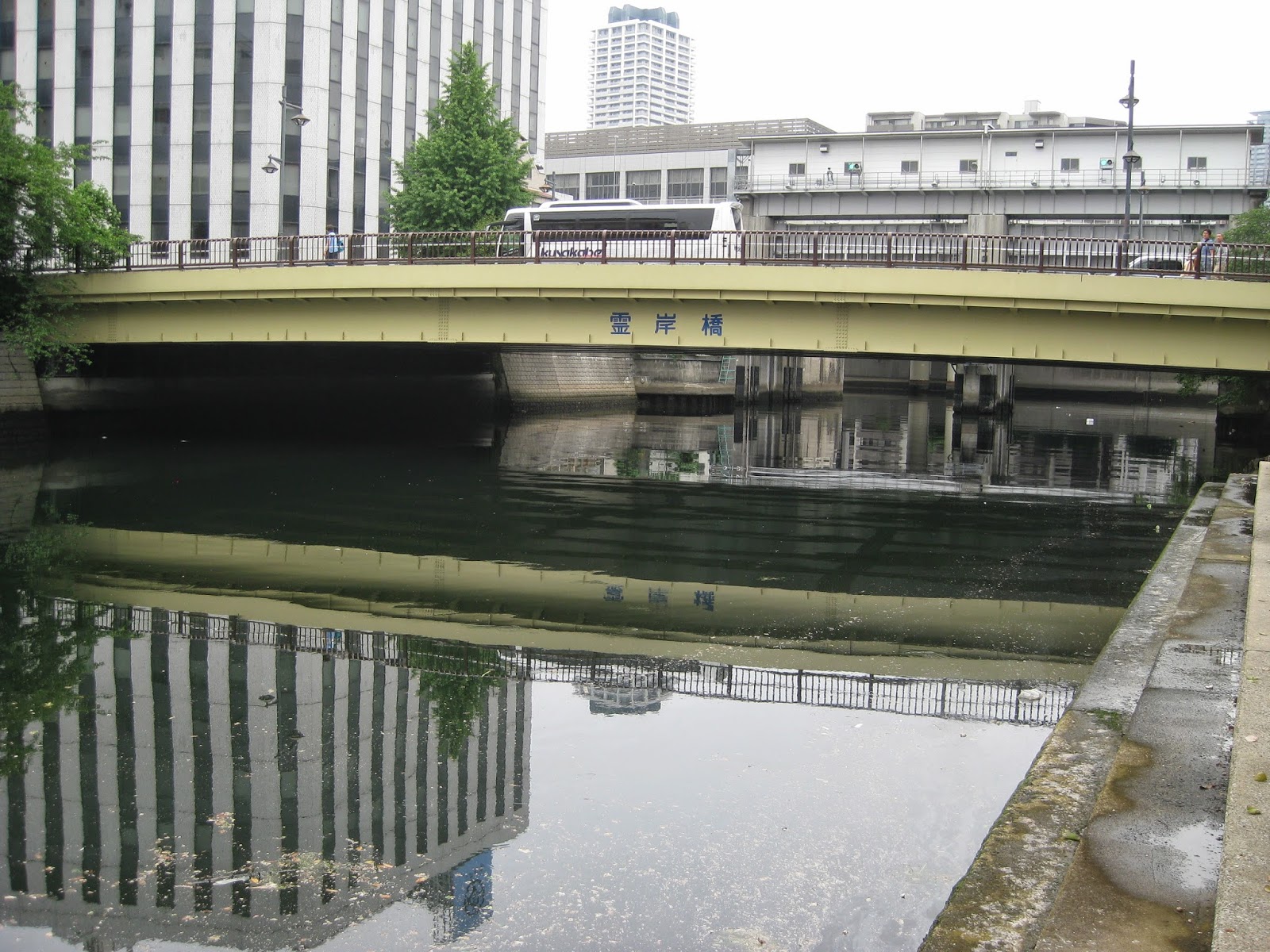‘Was
that a jellyfish?’
‘Nah,
I think it was a plastic bag.’
Actually,
it was a jellyfish. I’d never imagined there were such exotic creatures in
Tokyo’s dark and murky rivers. In fact, it’s hard to believe there are any fish
at all down there, but our guide Yuki, a friendly native of Kobe, assures us
there are ‘some small ones’.
This
is my second experience of kayaking, the first having taken place in a mangrove
swamp in Okinawa. It’s fair to say the surroundings on that occasion were more
attractive. Here we can see high concrete banks, rusty and half-submerged boats,
the odd business hotel, flowerless cherry blossom trees and innumerable low and
uninspiring bridges. Not Venice, in short.
The
second of our guides, a brown-faced and fit-looking man named Hideki, runs us
through the rudiments of kayaking before we’re let loose upon the city’s
waterways. This demonstration takes about five minutes, and it all appears
pretty straightforward: keep your arms at right angles and move your upper body
from side to side as you paddle.
Once
in the water, my Pennsylvanian companion and I discover things might not be so
easy after all. Our initial efforts to go straight see us hit the embankments on
both sides of the river. (Two and a half hours later we’re still zigzagging,
expending masses of energy in the process.)
The first section of our route takes us across the wide and choppy Sumida River, tourist
boat territory. ‘This is the most difficult part’, Yuki observes, several of
our predecessors having apparently failed even to make it to the other side. We
wait as a river bus ploughs serenely by, sending out small waves that cause our
kayaks to bob gently up and down. Then we head north up the Sumida, the wind making
it easier to progress than on the secluded canal we just exited.
As
my earlier comments suggest, the rivers we paddle through are far from clean. There
are baseballs, tennis balls, plastic bottles and cartons, even a dead bird. Near
our landing stage it looked like there had been a minor oil slick. Falling in seems
a deeply unpleasant prospect.
Getting
wet is unavoidable, and my shirt is soaked soon after we begin. I quickly
establish that wearing sunglasses is strongly advisable, in light of the spray
from our paddles, but there’s little to be done about the salty river water
getting into your mouth. The paddling is punishing on the upper arms, and when
we pause for a break I devour a bag of snacks like a man who’s been subsisting
on a diet of insects for a couple of weeks.
There
aren’t many people on the bridges we paddle beneath, but the young Japanese
kids who see us seem rather awestruck. We bellow out ‘konnichiwa’ in response
to their waves, feeling like celebrities.
After
at least 6 kilometres of paddling we struggle out of our kayaks, Hideki
congratulating us by saying ‘Otskare sama deshita’ (‘thank you for your hard
work’). We return to the company’s office for a cold beer and talk of Tokyo. It’s
been exhausting, but one of the best things I’ve done in this city.
Info:
Tokyo Great Kayaking Tour runs tours from near Kayabacho Station (Hibiya Line) for
6000 yen per person. This price includes kayak and life jacket rental, a bag of
snacks, a bottle of water and a beer at the end!


